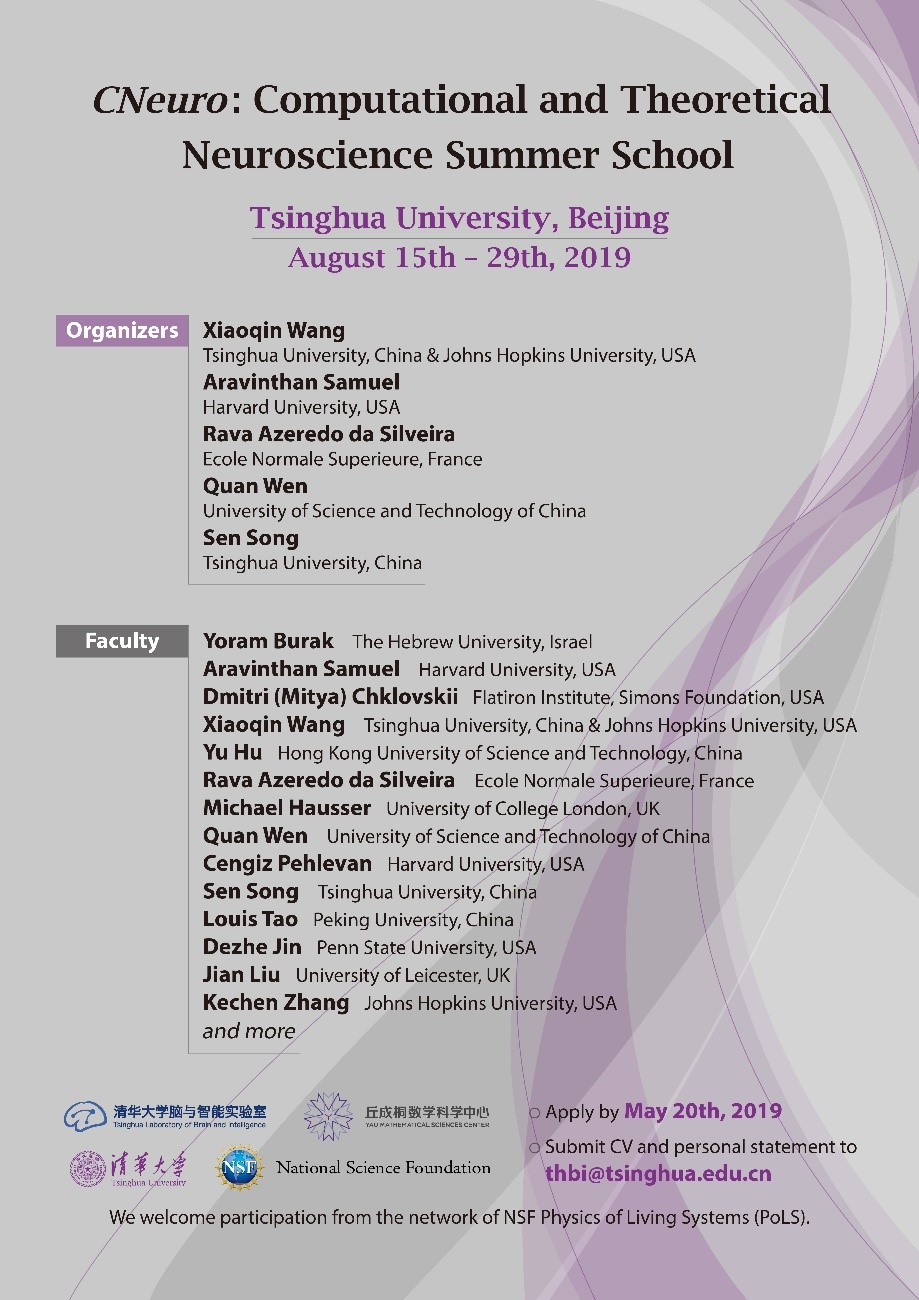
About CNeuro
How intelligence and behavior emerge from complex and intricate interactions within the brain remains important and unsolved mysteries in modern science. This is an exciting area of interdisciplinary research. In the last decade, we have seen rapid progress in experimental tools that now make it possible to monitor and manipulate brain circuits in unprecedented detail. This research area presents both challenges and opportunities for experimentalists and theoreticians. The complexity and dynamics of the brain make it difficult to tackle with experimental approaches alone. Mathematical theory is pivotal to bring theoretical framework and new insights to guide experiments and identify unifying concepts and principles of brain functions. In this two-week summer school, our aim is to introduce students with a strong quantitative background (e.g., mathematics, theoretical physics, computer science and engineering) to the emerging field of theoretical and computational neuroscience. The course will also bring together leading scientists in theoretical and computational neuroscience. We envision a collaborative environment where faculty and students will have in-depth discussions on topics in the frontier of neuroscience. The course will be a pedagogical basis for new students, introducing them to advanced mathematical methods and modeling approaches that are now being used and developed to understand brain functions.
Course Structure and Curriculum
Each day, we will have three 1-hour lectures in the morning and two 1-hour lectures in the afternoon. Students will then work on problem sets and projects in small groups. The course curriculum may include the following topics:
•Single neuron biophysics
•Coding theory for sensory systems
•Dynamic systems theory for neural network
•Learning and memory models
•Motor Control
Faculty
•Yoram Burak, The Hebrew University, Israel
•Aravi Samuel, Harvard University, USA
•Dmitri (Mitya) Chklovskii, Flatiron Institute, Simons Foundation, USA
•Yu Hu, Hong Kong University of Science and Technology, China
•Rava Azeredo da Silveira, Ecole Normale Superieure, France
•Michael Hausser, University of College London, UK
•Quan Wen, University of Science and Technology of China
•Cengiz Pehlevan, Harvard University, USA
•Sen Song, Tsinghua University, China
•Louis Tao, Peking University, China
•Dezhe Jin, Penn State University, USA
•Jian Liu, University of Leicester, UK
•Kechen Zhang, Johns Hopkins University, USA
and more
Students
The course invites students from around the world. The NSF Physics of Living Systems Graduate Student Network has funds to send 10-15 students from the United States, Europe, and Israel to the course.
